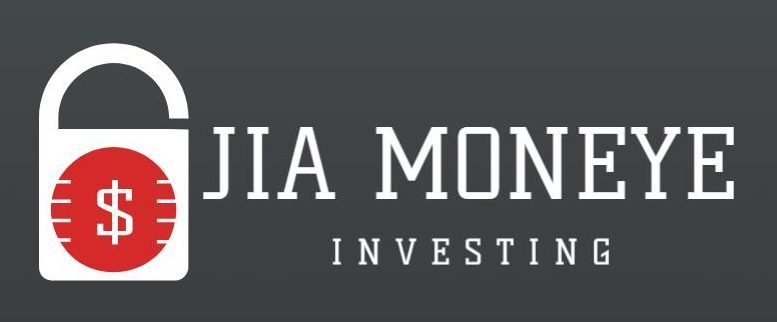
Personal Finance Management: Tips from Banking Experts
Understanding the Balance: Profit and Responsibility in Banking Ethics
Banking ethics, a topic of paramount importance in the financial world, is a delicate balance between profit and responsibility. This balance is not only crucial for the survival and success of the banking institutions but also for the overall health of the economy. The banking sector, being the backbone of the economy, has a significant role to play in maintaining this equilibrium.
The pursuit of profit is a fundamental aspect of any business, and banks are no exception. Banks are profit-oriented institutions that provide financial services to their customers. They generate profits through interest on loans, fees for services, and investments. However, the pursuit of profit should not overshadow the responsibility that banks have towards their stakeholders, which include not only shareholders but also customers, employees, and the society at large.
The responsibility of banks extends beyond their primary role of financial intermediation. They have a social responsibility to contribute to the economic well-being of the society in which they operate. This includes providing fair and transparent services, promoting financial inclusion, and contributing to sustainable development. Banks also have a responsibility to maintain the trust and confidence of their customers by safeguarding their deposits and providing them with reliable and efficient services.
However, the balance between profit and responsibility in banking ethics is often challenged by various factors. One such factor is the pressure to maximize shareholder value, which can lead to unethical practices such as excessive risk-taking, mis-selling of products, and manipulation of financial statements. Another factor is the competitive nature of the banking industry, which can drive banks to prioritize profit over responsibility.
To maintain the balance between profit and responsibility, banks need to adopt a holistic approach to ethics. This involves integrating ethical considerations into their business strategies, decision-making processes, and corporate culture. It also involves establishing robust governance structures and risk management systems to prevent unethical practices and ensure accountability.
Moreover, banks need to engage in ethical leadership, which involves leading by example and promoting ethical behavior among employees. This can be achieved through training and development programs, performance management systems that reward ethical behavior, and open communication channels that encourage employees to voice their concerns about unethical practices.
Furthermore, banks need to engage with their stakeholders and understand their expectations. This can be achieved through stakeholder engagement activities such as surveys, focus groups, and public consultations. By understanding the expectations of their stakeholders, banks can align their business practices with these expectations and build trust and credibility.
In conclusion, the balance between profit and responsibility in banking ethics is a complex and challenging task. However, it is a task that banks cannot afford to ignore. By striking the right balance, banks can not only enhance their profitability and sustainability but also contribute to the economic and social well-being of the society. Therefore, banking ethics is not just about doing the right thing; it is also about doing the right thing in the right way.
Top 10 Personal Finance Management Tips from Banking Experts
Personal finance management is a critical skill that everyone should master. It involves planning, saving, investing, and spending money wisely to achieve financial stability and growth. Banking experts, with their vast knowledge and experience in financial matters, offer valuable insights on how to manage personal finances effectively. Here are the top ten personal finance management tips from banking experts.
Firstly, setting clear financial goals is paramount. Whether it’s buying a house, starting a business, or saving for retirement, having a specific target can guide your financial decisions and keep you motivated. It’s essential to make these goals realistic, measurable, and time-bound to track your progress effectively.
Secondly, creating a budget is a fundamental step in personal finance management. It helps you understand your income and expenses, allowing you to make informed decisions about your spending habits. A budget also enables you to allocate funds for your financial goals and avoid unnecessary expenditures.
Thirdly, banking experts recommend building an emergency fund. Life is unpredictable, and financial emergencies can arise at any time. Having a safety net can help you navigate these unexpected situations without resorting to loans or credit card debt.
Fourthly, it’s crucial to pay off debts as soon as possible. High-interest debts, such as credit card debts, can significantly hinder your financial growth. Prioritizing debt repayment can free up more money for savings and investments.
Fifthly, investing is a powerful tool for wealth creation. While it involves risks, investing in stocks, bonds, or mutual funds can yield higher returns than traditional savings accounts over the long term. It’s advisable to seek professional advice or conduct thorough research before investing.
Sixthly, banking experts emphasize the importance of diversifying investments. Spreading your investments across different asset classes can reduce risk and increase potential returns. Diversification can help you achieve a balanced portfolio that aligns with your financial goals and risk tolerance.
Seventhly, it’s essential to regularly review and adjust your financial plan. Changes in income, expenses, or financial goals may necessitate adjustments to your budget, savings, or investments. Regular reviews can ensure your financial plan remains relevant and effective.
Eighthly, banking experts advise against living beyond your means. Overspending can lead to debt accumulation and financial instability. It’s crucial to spend within your budget and save for big-ticket items instead of relying on credit.
Ninthly, it’s important to understand and manage your credit score. A good credit score can help you secure loans or credit cards with lower interest rates. Regularly checking your credit report can help you identify and rectify any errors that may negatively impact your score.
Lastly, banking experts recommend seeking professional financial advice. While self-education is important, professional financial advisors can provide personalized advice based on your unique financial situation and goals. They can help you navigate complex financial matters and make informed decisions.
In conclusion, effective personal finance management involves setting clear financial goals, budgeting, building an emergency fund, paying off debts, investing, diversifying investments, regularly reviewing your financial plan, living within your means, managing your credit score, and seeking professional advice. These tips from banking experts can guide you towards financial stability and growth. Remember, the journey to financial freedom is a marathon, not a sprint. It requires patience, discipline, and consistency.
The Role of Ethics in Profitable Banking: A Delicate Balance
In the rapidly evolving world of banking, the advent of blockchain technology and other innovative solutions have revolutionized the way financial transactions are conducted. However, as these advancements continue to reshape the banking landscape, the role of ethics in profitable banking has become a topic of increasing importance. The delicate balance between profitability and ethical conduct is a critical issue that banks must address to maintain their credibility and ensure sustainable growth.
The banking industry, like any other business, aims to maximize profits. However, the pursuit of profitability should not compromise ethical standards. Banks hold a unique position of trust in society, handling the hard-earned money of individuals and businesses. Therefore, they have a moral obligation to operate with integrity, transparency, and fairness. This ethical responsibility is not just a moral imperative but also a key to profitability in the long run.
In recent years, the banking industry has witnessed several instances where a lack of ethical conduct has led to significant financial losses and reputational damage. For instance, the global financial crisis of 2008 was largely attributed to unethical practices in the banking sector, such as reckless lending and risky investments. These practices not only led to massive financial losses but also eroded public trust in banks.
In contrast, banks that uphold high ethical standards tend to enjoy greater customer loyalty, which translates into more stable revenue streams. Ethical banks are also less likely to face regulatory fines or legal actions, which can be costly and damaging to their reputation. Therefore, ethical conduct is not just about doing the right thing; it is also a smart business strategy.
The introduction of blockchain technology in banking has further underscored the importance of ethics. Blockchain, with its decentralized and transparent nature, has the potential to enhance trust and accountability in banking. However, it also raises new ethical challenges. For instance, the anonymity provided by blockchain can be exploited for illicit activities, such as money laundering or fraud. Therefore, banks need to implement robust controls and ethical guidelines to ensure that blockchain technology is used responsibly.
Moreover, as banks increasingly rely on algorithms and artificial intelligence for decision-making, they must ensure that these technologies are designed and used ethically. For instance, algorithms used for credit scoring or loan approvals should not discriminate against certain groups or individuals. Banks also need to be transparent about how these technologies work and how they make decisions, to maintain trust with their customers.
In conclusion, the role of ethics in profitable banking is a delicate balance that requires careful consideration. While banks need to pursue profitability to survive and grow, they must also uphold high ethical standards to maintain trust and credibility. The advent of blockchain and other innovative technologies has added a new dimension to this balance, raising new ethical challenges that banks must address. By doing so, banks can not only avoid costly mistakes but also build a more sustainable and profitable future.
Exploring the Opportunities in International Banking
International banking, a sector that has experienced significant growth and transformation over the past few decades, presents a myriad of opportunities for both financial institutions and their customers. However, it is not without its challenges. This article aims to explore the opportunities in international banking, while also shedding light on the potential hurdles that need to be navigated.
The advent of globalization has made the world a smaller place, and international banking has been a key driver of this phenomenon. It has opened up new markets for banks, allowing them to expand their customer base and diversify their revenue streams. This expansion is not just limited to large multinational banks. Smaller banks, too, have the opportunity to tap into foreign markets, either directly or through partnerships with local banks.
International banking also offers customers a wider range of products and services. For instance, multinational corporations can leverage international banking services to manage their global operations more efficiently. They can access foreign exchange services, international trade financing, and cross-border payment systems, among other services. Similarly, individual customers can benefit from services such as overseas money transfers and foreign currency accounts.
Moreover, international banking plays a crucial role in facilitating global trade and investment. It provides the necessary financial infrastructure for businesses to import and export goods, invest in foreign markets, and raise capital from international investors. In this way, international banking contributes to economic growth and development, both at a national and global level.
However, the opportunities in international banking come with their own set of challenges. One of the main challenges is the regulatory complexity. Banks operating in multiple countries have to comply with a multitude of laws and regulations, which can be costly and time-consuming. They also have to navigate the differences in legal systems, business cultures, and customer preferences.
Another challenge is the risk associated with foreign exchange fluctuations. Banks that engage in international banking activities are exposed to currency risk, which can impact their profitability. They need to have robust risk management systems in place to mitigate this risk.
Furthermore, international banking is susceptible to global economic and political uncertainties. Events such as financial crises, political upheavals, and trade disputes can disrupt international banking activities and cause significant losses. Banks need to be prepared for such eventualities and have contingency plans in place.
In addition, the rise of digital technology has brought about new challenges for international banking. While technology has made it easier for banks to expand internationally, it has also increased the risk of cybercrime. Banks need to invest heavily in cybersecurity measures to protect their systems and customer data.
In conclusion, international banking offers immense opportunities for banks to grow and diversify, and for customers to access a wider range of services. However, it also presents significant challenges that need to be carefully managed. Banks that can successfully navigate these challenges will be well-positioned to reap the benefits of international banking.
Understanding the Challenges in International Banking
In the rapidly evolving world of finance, the traditional banking model is being challenged by the rise of online banks. These digital platforms offer a range of services that were once the exclusive domain of brick-and-mortar institutions. However, when it comes to international banking, both traditional and online banks face unique challenges that consumers should be aware of.
Traditional banks have long been the go-to choice for international banking due to their extensive global networks and established relationships with foreign financial institutions. They offer a wide range of services, including international wire transfers, foreign currency exchange, and overseas account management. However, these services often come with high fees and less-than-favorable exchange rates. Moreover, the process can be time-consuming and complex, requiring customers to visit a branch in person to initiate transactions.
On the other hand, online banks, with their digital-first approach, promise a more streamlined and cost-effective solution for international banking. They leverage technology to offer services such as international money transfers and multi-currency accounts at competitive rates. Furthermore, transactions can be initiated from the comfort of one’s home, making the process more convenient for the customer.
However, online banks also face their own set of challenges in the realm of international banking. For one, they lack the physical presence and established relationships that traditional banks have, which can limit their reach and capabilities in certain markets. Additionally, while online banks typically offer lower fees, they may not always provide the best exchange rates, especially for less common currencies.
Security is another critical concern in international banking. Traditional banks have robust security measures in place to protect customer data and funds. They also offer insurance on deposits, providing an additional layer of protection for customers. Online banks, while generally secure, are more susceptible to cyber threats due to their digital nature. While many online banks do offer insurance on deposits, the coverage may not be as comprehensive as that offered by traditional banks.
Regulation is another area where traditional and online banks differ significantly. Traditional banks are subject to stringent regulations and oversight by central banks and financial authorities. This ensures that they adhere to best practices and maintain high standards of service. Online banks, while also regulated, are often subject to less stringent oversight due to their relatively new and evolving nature. This can potentially lead to issues with compliance and service quality.
In conclusion, both traditional and online banks have their strengths and weaknesses when it comes to international banking. Traditional banks offer extensive global networks and robust security measures, but their services can be costly and time-consuming. Online banks offer convenience and competitive rates, but they may lack the reach and security of their traditional counterparts. Therefore, when choosing a bank for international transactions, it is essential to consider these factors and choose the one that best suits your needs and preferences.
Insider Secrets: Personal Finance Management Advice from Banking Professionals
Banking ethics, a topic of increasing importance in the financial world, is a delicate balance between profit and responsibility. It is a subject that has been thrust into the spotlight in recent years, particularly in the wake of the global financial crisis. The banking industry, like any other, is driven by the pursuit of profit. However, it also carries a significant responsibility towards its customers, shareholders, and society at large. This responsibility is not just about adhering to laws and regulations, but also about conducting business in a manner that is ethical, fair, and transparent.
Banking professionals, with their insider knowledge and experience, have a unique perspective on personal finance management. They understand the intricacies of the financial system and have a deep understanding of the ethical considerations that underpin it. Their advice, therefore, can be invaluable for individuals looking to navigate the complex world of personal finance.
One of the key pieces of advice from banking professionals is the importance of financial literacy. Understanding the basics of personal finance, such as budgeting, saving, investing, and borrowing, is crucial. It empowers individuals to make informed decisions about their money, reducing the risk of falling into debt or becoming a victim of financial fraud. Financial literacy also promotes ethical behavior in the banking industry. When customers are knowledgeable about financial matters, they are better equipped to hold banks accountable for their actions.
Another important piece of advice is the need for transparency. Banks have a responsibility to provide clear, accurate, and timely information to their customers. This includes information about the terms and conditions of products and services, fees and charges, and the risks associated with different types of investments. Transparency is not just about providing information, but also about ensuring that this information is understandable to the average customer. This is where the role of financial advisors becomes crucial. They can help customers understand complex financial information and make informed decisions.
Banking professionals also emphasize the importance of trust. Trust is the foundation of any banking relationship. It is built over time, through consistent and ethical behavior. Banks that prioritize ethical behavior, even at the cost of short-term profits, are more likely to earn the trust of their customers. This, in turn, can lead to long-term profitability. Trust can also be enhanced through effective communication. Banks need to communicate openly and honestly with their customers, addressing their concerns and resolving any issues promptly and fairly.
Finally, banking professionals highlight the role of regulation in promoting ethical behavior. Regulation is a powerful tool for ensuring that banks act in the best interests of their customers. It sets the standards for ethical behavior and holds banks accountable for their actions. However, regulation alone is not enough. It needs to be complemented by a strong culture of ethics within the banking industry. This culture needs to be driven from the top, with senior management setting the tone for ethical behavior.
In conclusion, banking ethics is a complex but crucial aspect of the financial industry. It involves balancing the pursuit of profit with the responsibility towards customers and society. The advice from banking professionals, based on their insider knowledge and experience, can provide valuable insights into personal finance management. By promoting financial literacy, transparency, trust, and regulation, they can help individuals navigate the complex world of personal finance and contribute to a more ethical banking industry.
Banking Experts Share Their Best Strategies for Personal Finance Management
Personal finance management is a critical skill that everyone should master. It involves planning, saving, investing, and spending money wisely to achieve financial stability and growth. Banking experts, with their vast knowledge and experience in financial matters, offer invaluable insights into effective personal finance management.
One of the most fundamental tips from banking experts is to create a budget. A budget is a financial plan that outlines your income and expenses. It helps you understand where your money is going, control your spending, and save more effectively. To create a budget, you need to list all your income sources and expenses, then compare the two. If your expenses exceed your income, you need to find ways to cut back. If you have a surplus, you can use it to pay off debts or save for future needs.
Another crucial strategy is to build an emergency fund. Life is unpredictable, and unexpected expenses can arise at any time. An emergency fund acts as a financial safety net, protecting you from financial hardships in case of emergencies such as job loss, medical expenses, or car repairs. Banking experts recommend saving at least three to six months’ worth of living expenses in your emergency fund.
Investing is another key aspect of personal finance management. It involves putting your money into ventures that have the potential to generate returns over time. Investing can help you grow your wealth and achieve long-term financial goals such as buying a home or retiring comfortably. However, investing also involves risks, so it’s important to do your research and consider seeking advice from financial advisors.
Banking experts also emphasize the importance of managing debts effectively. High-interest debts such as credit card debts can quickly spiral out of control if not managed properly. It’s important to prioritize paying off high-interest debts to reduce the total amount of interest you pay. Additionally, avoid taking on new debts unless absolutely necessary.
Another important tip is to regularly review and adjust your financial plan. Your financial situation can change over time due to factors such as changes in income, expenses, or financial goals. Regularly reviewing your financial plan allows you to make necessary adjustments to stay on track towards achieving your financial goals.
Lastly, banking experts recommend taking advantage of financial tools and resources. Many banks and financial institutions offer tools such as budgeting apps, online calculators, and financial education resources to help customers manage their finances more effectively. These tools can make personal finance management easier and more efficient.
In conclusion, personal finance management is a crucial skill that can significantly impact your financial stability and growth. By creating a budget, building an emergency fund, investing wisely, managing debts effectively, regularly reviewing your financial plan, and utilizing financial tools and resources, you can take control of your finances and achieve your financial goals. These strategies, shared by banking experts, provide a solid foundation for effective personal finance management.


